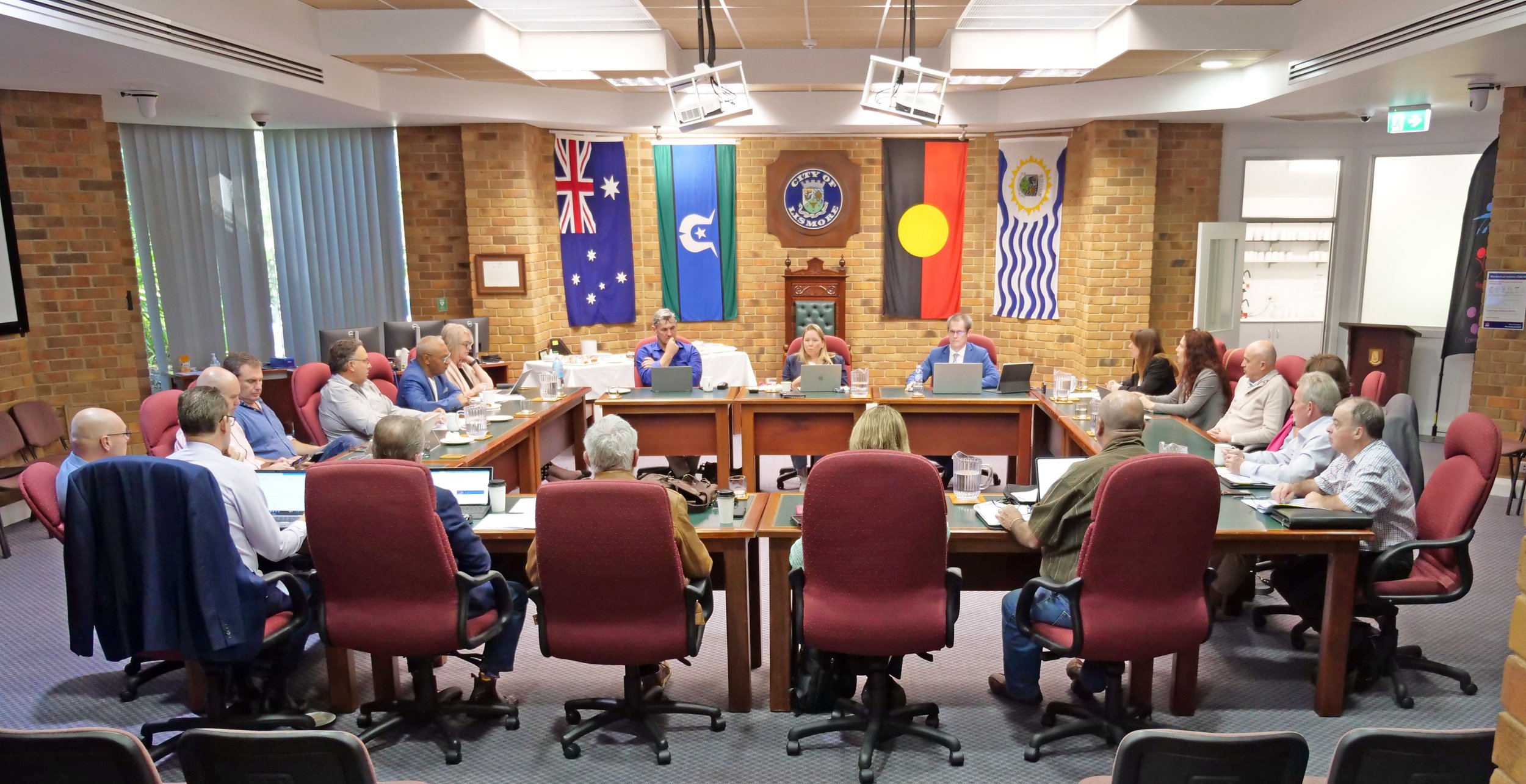REGIONAL CITIES NSW SEEKS FREIGHT SOLUTIONS
RCNSW Board meets in the City of Lismore
Regional Cities New South Wales (RCNSW) used a regional roadshow to the City of Lismore as an opportunity to advocate for a statewide solution to regional freight choke points.
The RCNSW Board met with Lismore City Council during a special visit to Lismore and took the opportunity to highlight the issues plaguing the regional road network.
RCNSW Chair Cr Mathew Dickerson explained that while significant planning and coordination of freight-based infrastructure is undertaken for the State road network, no such planning is undertaken of the local road network – the majority of the NSW road network.
“Regional Cities NSW has identified this as a huge gap and critical failing in our state’s road network,” RCNSW Chair and Mayor of Dubbo Regional Council Cr Mathew Dickerson said.
“Freight transport networks are not defined by local government boundaries and require a coordinated response to identify constraints, and provide viable solutions,” Cr Dickerson explained.
Infrastructure Australia noted that between 2011 and 2031, the total domestic land freight task will grow by 80 per cent and that the transport and logistics sectors of the Australian economy are estimated to contribute 14.5 per cent of GDP, making strategic planning critical.
Regional NSW accounts for 30 per cent of NSW Gross State Product (GSP) and 33 per cent of goods manufactured in NSW. Regional NSW’s freight task is forecast to grow from 255 million to 286 million tonnes in the next 5 years.
RCNSW was successful in securing funding from the NSW Government to develop a Program Business Case, to demonstrate the significance of local road freight choke points and identify viable solutions to such constraints.
The final business case is required to be completed by 30 September 2023.
“We know that the NSW Government’s Freight and Ports Plan 2018-2023 called on governments and industry to collaborate on clear initiatives to make the NSW freight task more efficient and safer.
“We know that this project will deliver the results the NSW Government’s Freight and Port Plan had envisaged, we hope they find funding for the delivery of this key initiative in the next budget,” Cr Dickerson said.
RCNSW has been a strong advocate for improvements to the State’s infrastructure planning and was recently asked to provide input into the State’s Strategic Infrastructure Review, with a final report being presented to Cabinet by the end of the month.
“RCNSW is rolling up its sleeves to identify freight choke points in the local road network and we would like to thank the New South Wales Government for funding the first step of this important project,” Cr Dickerson concluded.

